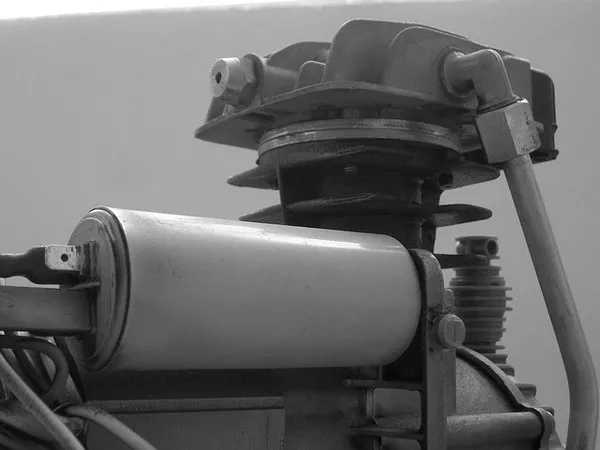An air compressor is a versatile and indispensable tool for any home garage. From inflating tires to powering pneumatic tools, a reliable air compressor can significantly enhance your DIY and automotive maintenance capabilities. However, with a plethora of options available in the market, finding the best air compressor for your specific needs can be a daunting task. This article aims to provide a comprehensive guide to assist you in making an informed decision when selecting the ideal air compressor for your home garage.
Understanding Your Needs
Before delving into the specifics of air compressors, it’s essential to understand your requirements. Consider the types of tasks you’ll be using the compressor for, the frequency of use, the available space in your garage, and your budget constraints. This initial assessment will lay the foundation for choosing an air compressor that best aligns with your needs.
Types of Air Compressors
Air compressors can be broadly categorized into three main types: reciprocating (piston), rotary screw, and centrifugal. However, for most home garage applications, reciprocating and rotary screw compressors are the most relevant.
Reciprocating (Piston) Compressors
Reciprocating compressors use a piston and cylinder mechanism to compress air. They are further classified into single-stage and two-stage compressors. Single-stage compressors are suitable for light to moderate use and are cost-effective. Two-stage compressors offer higher pressure levels and are suitable for more demanding tasks.
Pros:
Affordable initial cost.
Suitable for intermittent use.
Available in various sizes and capacities.
Portable options are available.
Cons:
Louder operation compared to other types.
Requires more maintenance due to more moving parts.
Rotary Screw Compressors
Rotary screw compressors use two interlocking helical screws to compress air. They are known for their continuous and efficient operation, making them suitable for heavy-duty applications.
Pros:
Smooth and quiet operation.
Well-suited for continuous use.
Lower maintenance requirements.
Higher output capacity.
Cons:
Higher initial investment.
Larger and less portable than reciprocating compressors.
Key Factors to Consider
When evaluating air compressors for your home garage, several crucial factors need to be considered to ensure you make the best choice.
1. CFM (Cubic Feet per Minute)
CFM indicates the compressor’s airflow capacity, which determines its ability to power pneumatic tools. Consider the CFM requirements of the tools you intend to use and ensure the compressor’s output meets or exceeds these requirements.
2. Tank Size
The tank size determines the amount of compressed air the unit can store. A larger tank can provide a steadier airflow for tools that require higher CFM intermittently. For occasional use, a smaller tank might suffice.
3. Maximum Pressure
Different tools have varying pressure requirements. Ensure the compressor’s maximum pressure output is sufficient for the highest-pressure tool you’ll be using.
4. Horsepower
While horsepower does influence the compressor’s performance, it’s not the sole determinant. A higher horsepower rating doesn’t necessarily mean better performance if other factors like tank size and CFM don’t align with your needs.
5. Noise Level
Especially for a home garage setting, the noise level of the compressor can be a significant consideration. Reciprocating compressors tend to be noisier than rotary screw compressors.
6. Portability
If you anticipate needing to move the compressor around your garage or take it to different locations, portability becomes essential. Smaller reciprocating compressors are generally more portable, whereas rotary screw compressors are often stationary.
7. Maintenance
Regular maintenance is crucial to ensure the longevity of your air compressor. Reciprocating compressors generally require more maintenance due to their complex mechanical components, while rotary screw compressors have fewer moving parts and therefore demand less frequent upkeep.
Top Recommendations for Home Garages
Based on the factors mentioned above, several air compressors stand out as excellent choices for home garage use:
1. California Air Tools CAT-1P1060SP
This lightweight and portable oil-free compressor are ideal for light-duty applications. With a 1.0-gallon steel tank, it produces 1.2 CFM at 90 PSI, making it suitable for inflation tasks and small pneumatic tools. Its low noise level is another plus, allowing for quieter operation in a home environment.
2. Porter-Cable C2002
With a larger 6.0-gallon tank, the Porter-Cable C2002 provides more capacity for higher CFM tools. It delivers 2.6 CFM at 90 PSI and features a durable oil-free pump for reduced maintenance. This compressor strikes a balance between performance and portability.
3. Makita MAC2400 Big Bore 2.5 HP
For those seeking more power and durability, the Makita MAC2400 offers a 2.5 HP motor and a 4.2-gallon twin-stacked tank. With 4.8 CFM at 90 PSI, it can handle a wider range of tools and tasks. Its cast-iron construction ensures longevity and efficiency.
4. Ingersoll Rand Garage Mate
The Ingersoll Rand Garage Mate is a two-stage reciprocating compressor designed for heavier tasks. With a 30-gallon tank and 5.5 HP motor, it delivers 11.3 CFM at 90 PSI. While larger and less portable, it’s a robust option for those with demanding needs.
Conclusion
Selecting the best air compressor for your home garage involves careful consideration of your specific requirements, available space, and budget. Assessing factors such as CFM, tank size, maximum pressure, and maintenance needs will guide you towards the right choice. The market offers a variety of options, from compact and portable reciprocating compressors to powerful and efficient rotary screw models. By understanding your needs and exploring reputable brands and models, you can confidently invest in an air compressor that enhances your DIY capabilities and supports your automotive maintenance endeavors for years to come.

